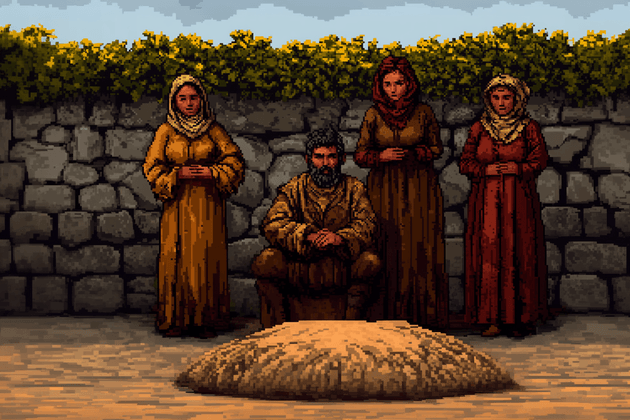Cremation is not the practice endorsed by the Bible or the early Christian tradition, as burial is the method shown throughout Scripture to honor the body, which is seen as a creation of God and a vessel of the soul. Here is the biblical reasoning for why cremation is considered a grave matter:
1. The Sanctity of the Body
The Bible teaches that the body is sacred, as it was created by God in His image (Genesis 1:27). It is further emphasized:
"Do you not know that your body is a temple of the Holy Spirit within you, whom you have from God? You are not your own, for you were bought with a price. So glorify God in your body." (1 Corinthians 6:19-20)
Cremation, in contrast, is often viewed as a way to destroy the body, rather than preserve its dignity and sanctity.
2. Burial as a Biblical Practice
In the Scriptures, burial is the consistent way of honoring the dead. Abraham, a righteous man and father of faith, buried his wife Sarah (Genesis 23). The same was done for Jacob and Joseph (Genesis 50). Even our Lord Jesus Christ was buried after His crucifixion (Matthew 27:59-60).
The act of burial is seen as an acknowledgment that the body will be resurrected by God on the Day of Judgment, as Paul writes:
"So it is with the resurrection of the dead. What is sown is perishable; what is raised is imperishable. It is sown in dishonor; it is raised in glory." (1 Corinthians 15:42-44)
3. The Resurrection of the Body
The belief in bodily resurrection underscores the importance of treating the body with respect, even in death.
"And many of those who sleep in the dust of the earth shall awake, some to everlasting life, and some to shame and everlasting contempt." (Daniel 12:2)
Burning the body through cremation may seem to disregard the hope of resurrection and the reverence due to the physical form that God created.
4. Destruction of the Body as a Symbol of Judgment
In the Bible, fire is often associated with judgment and destruction rather than reverence. For instance, the cities of Sodom and Gomorrah were destroyed by fire as an act of divine judgment (Genesis 19). Similarly, the wicked are described as being consumed by unquenchable fire:
"Then He will say to those on His left, 'Depart from Me, you cursed, into the eternal fire prepared for the devil and his angels.'" (Matthew 25:41)
Cremation could be interpreted as a symbolic act resembling destruction rather than hope for renewal.
5. Christian Tradition
The early Christian community strongly opposed cremation because of its association with pagan practices that denied the resurrection of the body. Pagan cultures, particularly those of Rome and Greece, practiced cremation as a means of severing ties with the physical form, reflecting their belief in the finality of death rather than the hope of resurrection. Many pagans saw burning the body as a way to liberate the soul from its earthly constraints, believing that fire would free the spirit from physical bondage. For example, ancient Hindu and Greco-Roman traditions often viewed cremation as a necessary step for the soul’s journey beyond this world.
However, this concept is contrary to the teachings of the Bible, which affirms that the body is not a mere shell to be discarded but a sacred vessel that will one day be resurrected. The practice of burial among believers symbolizes faith in God's promise of bodily resurrection, as demonstrated through the burial of the patriarchs and Christ Himself. Christians distinguished themselves by burying their dead in anticipation of the promise of eternal life, rejecting the customs of the pagans. This tradition continues to reflect a desire to honor the body in a way that aligns with biblical teachings.
Final Thoughts
While the Bible does not explicitly forbid cremation, the consistent teaching of Scripture and Christian tradition supports burial as the preferred way to honor the body. Since our bodies belong to God and will one day be resurrected, cremation can be viewed as a serious deviation from this sacred understanding, potentially making it a significant sin if done with disregard for the reverence owed to God.
Always reflect on the importance of following God’s ways in all aspects of life, even in death, as we entrust our souls and bodies to Him.
